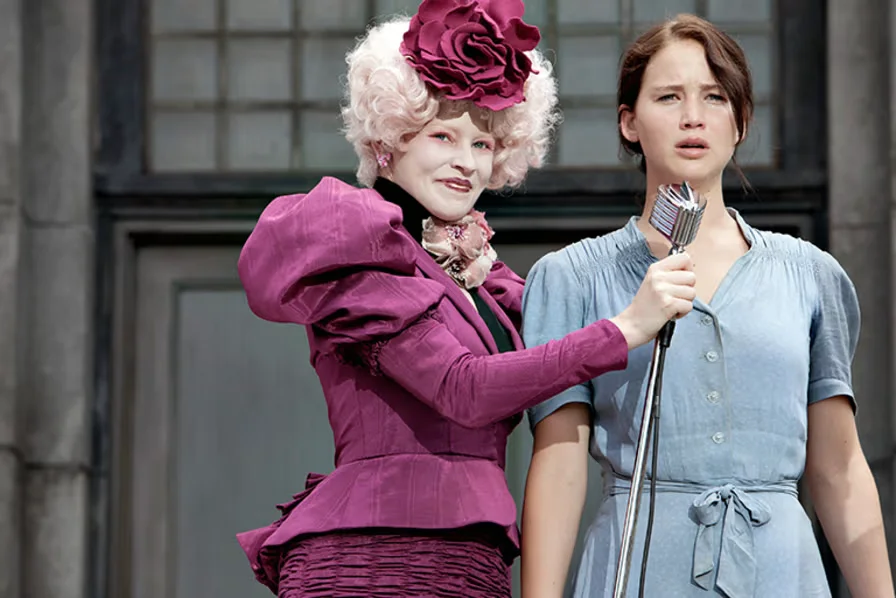The Blockout 2024 movement went beyond criticizing the Met Gala's ostentation. Many participants in the movement compared the event to the Capital of Panem, the opulent and technological city from the Hunger Games series. It was not just restricted to criticism on social media. It turned into a broader protest against the indifference of celebrities and high society. The campaign, which began on TikTok, sought to hold public figures accountable for their stance or lack thereof on political and social issues. Celebrities such as Beyoncé, Kim Kardashian and Billie Eilish have seen a significant drop in their followers, reflecting public disapproval.
Met Gala 2024: Luxury and Controversy
The 2024 Met Gala, known for its glitz and glamour, was not just an extravagant fashion show but also a scene of controversy. This year, while celebrities paraded in dazzling outfits that cost fortunes, pro-Palestinian protests were taking place outside the event. The entry ticket to the event came to an incredible US$ 75 thousand (approximately R$ 380 thousand), highlighting the disparity between the luxury within the event and the reality experienced by protesters on the streets.

The Haley Kalil Incident
The trigger for the revolt on social media was a video published by North American influencer Haley Kalil. In the video, which has now been deleted, Haley appeared in an extravagant look in front of the protesters, dubbing the TikTok audio “let them eat cake”. The phrase, wrongly attributed to Queen Marie Antoinette, became a symbol of the aristocracy's insensitivity and disdain towards the people's problems, especially after being popularized by the queen's biographical film, released in 2006.
Reaction on Social Media
Social networks did not forgive the stance of Haley Kalil and other celebrities present at the event. The Blockout 2024 hashtag quickly spread across TikTok and other platforms, with users criticizing celebrities' lack of empathy regarding current geopolitical conflicts. Comparisons with the French Revolution and Marie Antoinette's guillotine have become inevitable, with many internet users pointing out the disconnect between the elite and the world's real problems.
Impact on Celebrities’ Social Media
The loss of followers on social media was a hard blow for many celebrities. Beyoncé, Kim Kardashian and Billie Eilish were some of the most affected, with thousands of followers stopping following their profiles. This has not only damaged the public image of these personalities, but has also had a significant financial impact, as many of them depend on their online popularity for advertising contracts and partnerships.
The Importance of Celebrity Positioning
The incident raised an important question: the responsibility of celebrities in times of crisis. In an era where information spreads quickly and social awareness is at an all-time high, public figures are expected to take a stand and use their influence in a positive way. Silence or indifference can be interpreted as complicity or lack of empathy, resulting in adverse reactions from the public.

Analogy with The Hunger Games: The Capital and Inequality
The Blockout 2024 movement went beyond criticizing the Met Gala's ostentation. Many participants in the movement compared the event to the Capital of Panem, the opulent and technological city from the Hunger Games series. In the series, the Capital represents the ruling elite that exploits and oppresses the poorest districts. This analogy served to highlight the deep inequalities that exist in today's society, where a wealthy and powerful minority enjoys privileges while the majority of the population struggles to survive.
Additional Details
- The Historical Context of the French Revolution: The phrase “let them eat brioche” was attributed to Queen Marie Antoinette during the French Revolution. The phrase symbolizes the elite's indifference towards the suffering of the people, who went hungry while the nobility feasted on luxuries.
- The Hunger Games Series: The Hunger Games series, written by Suzanne Collins, portrays a dystopian society divided into districts. The Capital, where the elite live, exploits and oppresses the poorest districts. The series serves as a critique of social inequality and violence.
- The Impact of Blockout 2024 on Celebrities: The Blockout 2024 movement led to the loss of followers by some celebrities present at the Met Gala, such as Beyoncé, Kim Kardashian and Billie Eilish. This demonstrates the power of online activism.
Beyond Ostentation: Blockout 2024 and the Discussion on Performative Philanthropy
Performative Philanthropy and Conscious Capitalism
Blockout 2024 not only criticized the Met Gala's ostentation, but also questioned the performative philanthropy practiced by many celebrities. Performative philanthropy is characterized by the public donation of symbolic amounts to social causes, often without a real commitment to social transformation.
Many celebrities use social media to promote their philanthropic donations, that is, creating an image of social engagement. However, Blockout 2024 questions the superficiality of these actions and how much they effectively contribute to solving complex social problems.
Conscious Capitalism and Social Responsibility
The movement also opened space to discuss the role of conscious capitalism and corporate social responsibility. Conscious capitalism proposes the integration of socially responsible and environmentally sustainable practices into business strategies.
In this context, Blockout 2024 questions the relationship of some luxury brands with the Met Gala. In other words, many of these brands position themselves as socially responsible, but, at the same time, they associate themselves with an event that symbolizes inequality. In this way, the movement raises the question of coherence between company discourse and practice.
Beyond Blockout 2024: How to Promote Social Change?
Blockout 2024 was an important social awareness movement, but we need to go beyond criticism. It is essential to think about concrete actions that can promote effective changes.
Some initiatives that can be considered are:
- Support for serious organizations that work on social causes: Online activism can be channeled to support NGOs and social movements that effectively work towards social transformation.
- Conscious consumption: Consuming products from companies committed to socially responsible practices is a way of putting pressure on the market and encouraging change.
- Conscious vote: Voting is a powerful tool for influencing public policies, as well as promoting a fairer society.
Conclusion
The Met Gala 2024 and Blockout 2024 revisited important discussions about social inequality, performative philanthropy and the role of companies in society. The movement serves as a reminder of the need to go beyond virtual outrage and seek concrete actions to build a more just and supportive world.
For reflection:
- What is the role of social media in promoting social change?
- How can we encourage genuine social engagement from celebrities and companies?
- How can we build a more just and equitable society?
Ultimately, Blockout 2024 can be the starting point for a productive dialogue on these issues. It is essential that we continue to mobilize and demand changes for a better world.
My talent is helping entrepreneurs create their brands It is websites professionals, to have their own lives and become increasingly stronger in the market. Creatively conceptualizing in an authentic way. Building new spaces in digital and physical channels. And executing strategic actions to marketing with IF THE to achieve results.